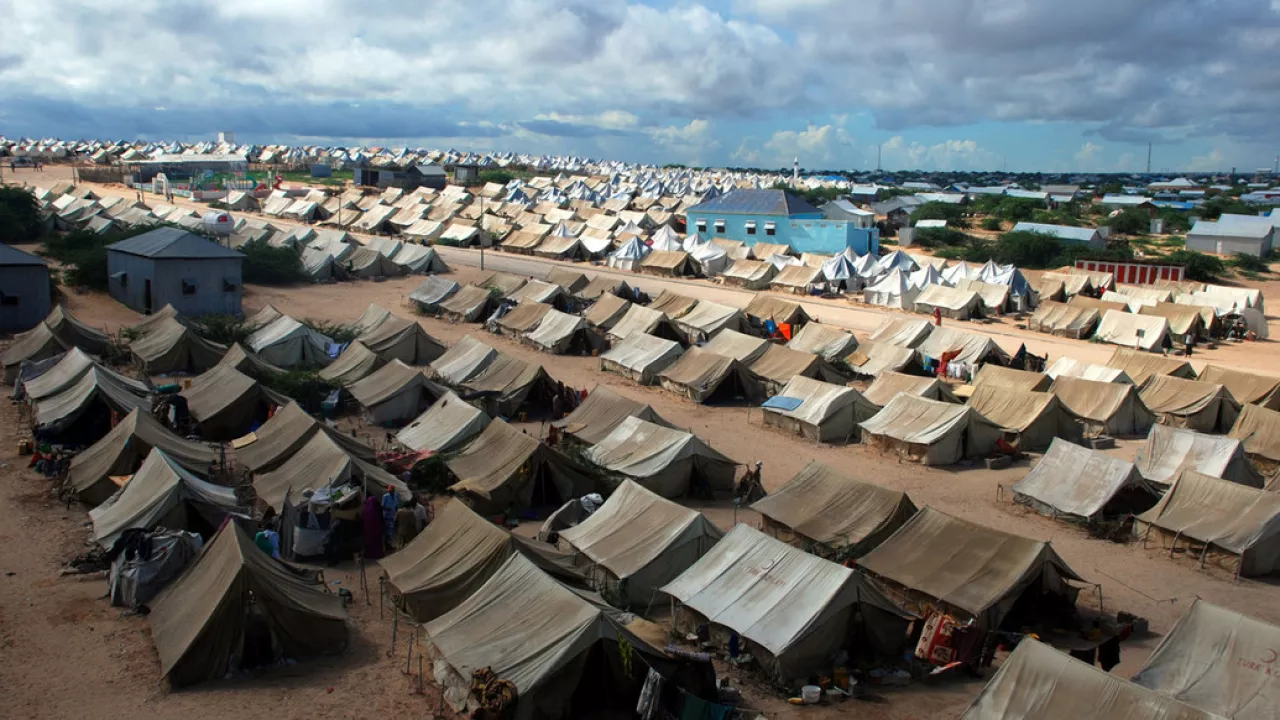How digitalisation affects migration
How digitalisation affects migration
Published
26 September 2022
Share
Giorgia, professor of refugee and forced migration studies and co-director of the Centre for Refugees, Migration and Belonging at the University of East London, gave a speech entitled:
Migration management, borders and digital technologies: The coloniality of power in techno-borderscapes.
The focus of Professor Dona's research is on the ways in which migrants are subjected to digitisation and how this relates to past colonial practices.
This can be:
- Digitalisation of migration management: Information and communication technologies play a crucial role in states’ securitisation and surveillance.
- Digitalisation of border governance: De-territorialised practices of categorisation to manage and control movement. A lot of technology is used for 'Smart Borders', such as biometrics, the origins of which can be traced to colonial times.
- Interplay of human actors and technological systems.
During the speech, at Koc University, Professor Dona said,
The increased use of digital technologies that identify, track, and control people crossing borders result in the increasing digitalisation of borders, migrants, and their management. This digitalisation of migration management does not emerge from a vacuum but rather resonates with past colonial practices.
I examine how the coloniality of power frames, reinforces, and transforms hierarchical elements of the bordering process in digital spaces. The coloniality of power identifies and describes the living legacy of colonialism in contemporary societies in the form of social discrimination that outlived formal colonialism and became integrated in succeeding social orders.
"The coloniality of power operates through relations of exploitation and extraction from people in vulnerable and powerless circumstances. Similar to the exploitation of the labour of slaves, indentured and colonial subjects, the suffering and survival of migrants crossing borders is converted into data that is extracted, exchanged commodified and accumulated in the capitalist global economy.
"Human lives are converted into numerical and algorithmic data that is ordered, differentiated and organised hierarchically. Difference is normalised through 'risk and racial profiling' of migrants, fostering discrimination and unequal access to rights and resources."
Professor Dona discussed how digital technologies cannot be understood in isolation from material, social, cultural, political, economic, and emotional factors.
She also looked at how technology can also be used to empower migrants, such as providing information and access to services, to allow migrants to become activists, and by allowing access to forums to bring people together online to share collective experiences.
Professor Dona also talked about the future of, and restraints of, the new digital border.
"The digital border has its own borderlands too and it is important to ask where are borderlands located in a digital age, how are they constituted, what new forms of governance and abandonment do they engender, and what opportunities for escape and subversive engagement do they enable or constraint," Professor Dona said.
The keynote was part of a two-day conference in Istanbul, Turkey, which examined digitisation issues of forced migration. As a result of the keynote, Professor Dona was invited by the conference organisers to become co-editor of a book based on the conference papers.
Share
Communications team
Contact us for press and interview requests
